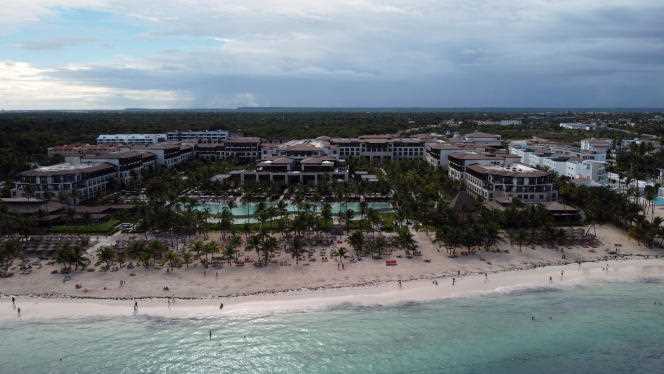“Here, on 60 meters, it’s up to us. There, it’s up to them, to the hotels. » Pierre, a Haitian salesman crossed on the sand of Punta Cana, masters a specific point of the Dominican Constitution: that which guarantees citizens free access to rivers, lagoons, lakes and… beaches. Article 15 of the Constitution has become crucial in a country where the latter have treasure value, given the place taken by seaside tourism.
The Dominican Republic’s 286 beaches have become a recurring point of contention between investors and local communities. The government is trying, depending on the balance of power, to accommodate private interests without alienating the population. A 2010 constitutional revision added a notion of “respect for private property” to the initial text and when a law, six years ago, had to specify the terms of access to the beaches, the hotel lobby warned against jeopardizing tourist interests.
“A serious problem of exclusion”
For the time being, constitutional law holds, but in areas where urbanization has been forced, guided by tourist projects, the seaside has been de facto privatized. Rare road access to the beach exists between some resorts ; but only small merchants, like Pierre, use them to canvass tourists. The Dominicans of Punta Cana, they no longer go swimming, or much further north, in Macao. “As a Dominican, if I have to take foreign friends to the beach, I no longer know where to go, admits Yolanda Leon, a researcher and activist with the environmental defense association Grupo Jaragua. It has become a serious problem of exclusion of the local population, especially in Punta Cana. »
Residents of Nuevo Juanillo must check in at the entrance to the golf ‘resort’ and pay $20 to reach the shore
Thus the fishing village of Juanillo, which the Cap Cana group had moved in the early 2000s far from the shore, against the promise of access to water and electricity. “The women were delighted, the men felt useless, because they lost access to the sea, and therefore their job”, says Yolanda Leon. Twenty years later, the last inhabitants of Nuevo Juanillo must register at the entrance to the resort for golfers and pay 20 dollars (about 19 euros) to reach the shore – in the form of an advance on consumption, since it is theoretically forbidden to privatize the premises.
You have 28.54% of this article left to read. The following is for subscribers only.
